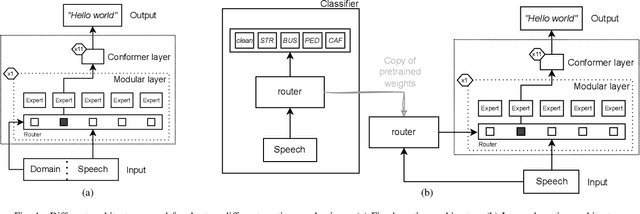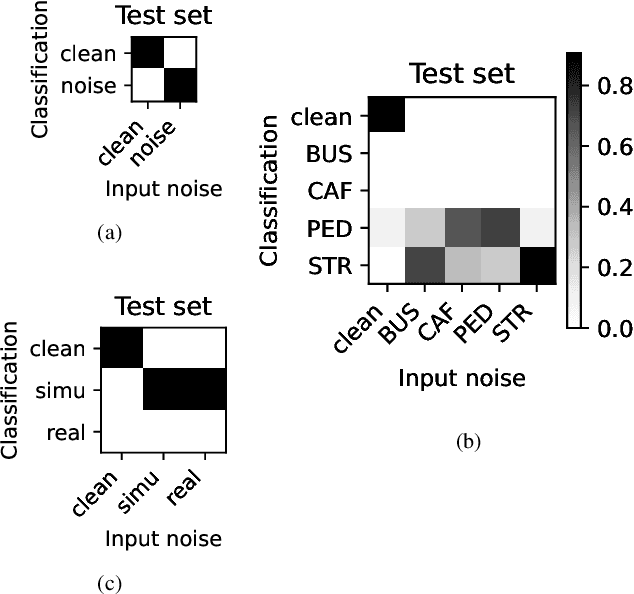An investigation of modularity for noise robustness in conformer-based ASR
Paper and Code
Sep 09, 2024



Whilst state of the art automatic speech recognition (ASR) can perform well, it still degrades when exposed to acoustic environments that differ from those used when training the model. Unfamiliar environments for a given model may well be known a-priori, but yield comparatively small amounts of adaptation data. In this experimental study, we investigate to what extent recent formalisations of modularity can aid adaptation of ASR to new acoustic environments. Using a conformer based model and fixed routing, we confirm that environment awareness can indeed lead to improved performance in known environments. However, at least on the (CHIME) datasets in the study, it is difficult for a classifier module to distinguish different noisy environments, a simpler distinction between noisy and clean speech being the optimal configuration. The results have clear implications for deploying large models in particular environments with or without a-priori knowledge of the environmental noise.
 Add to Chrome
Add to Chrome Add to Firefox
Add to Firefox Add to Edge
Add to Edge